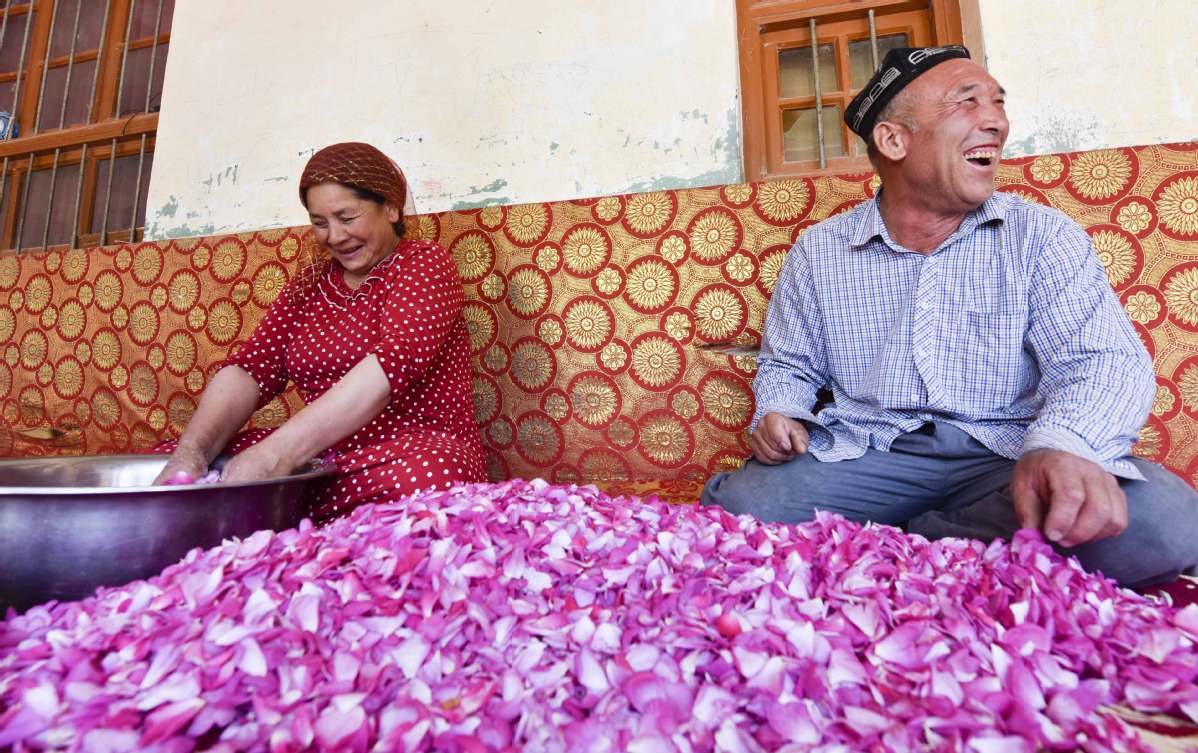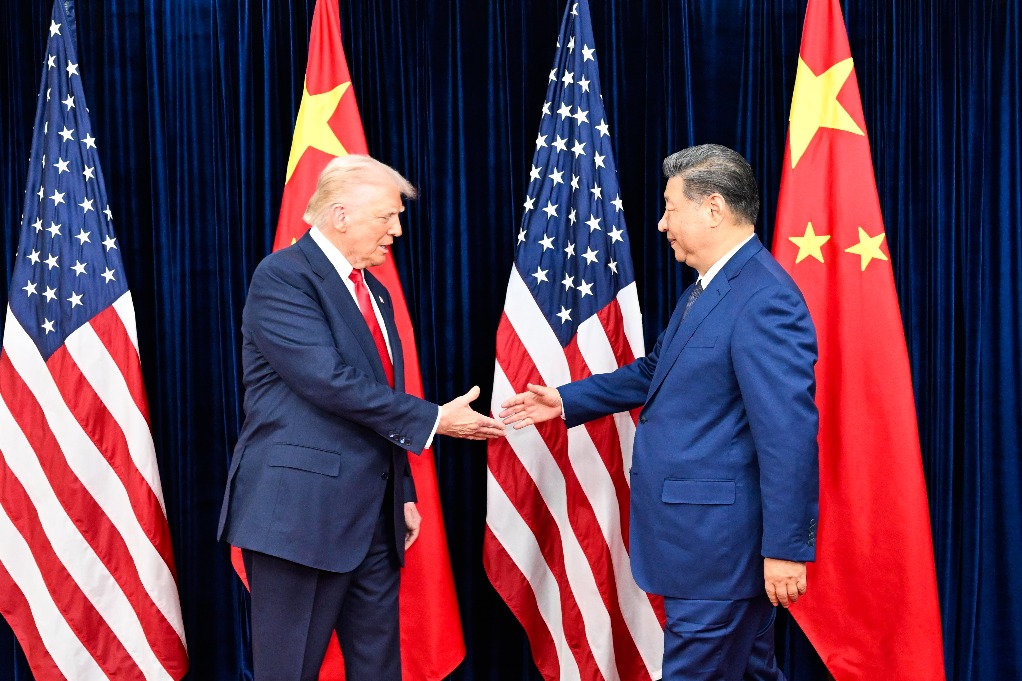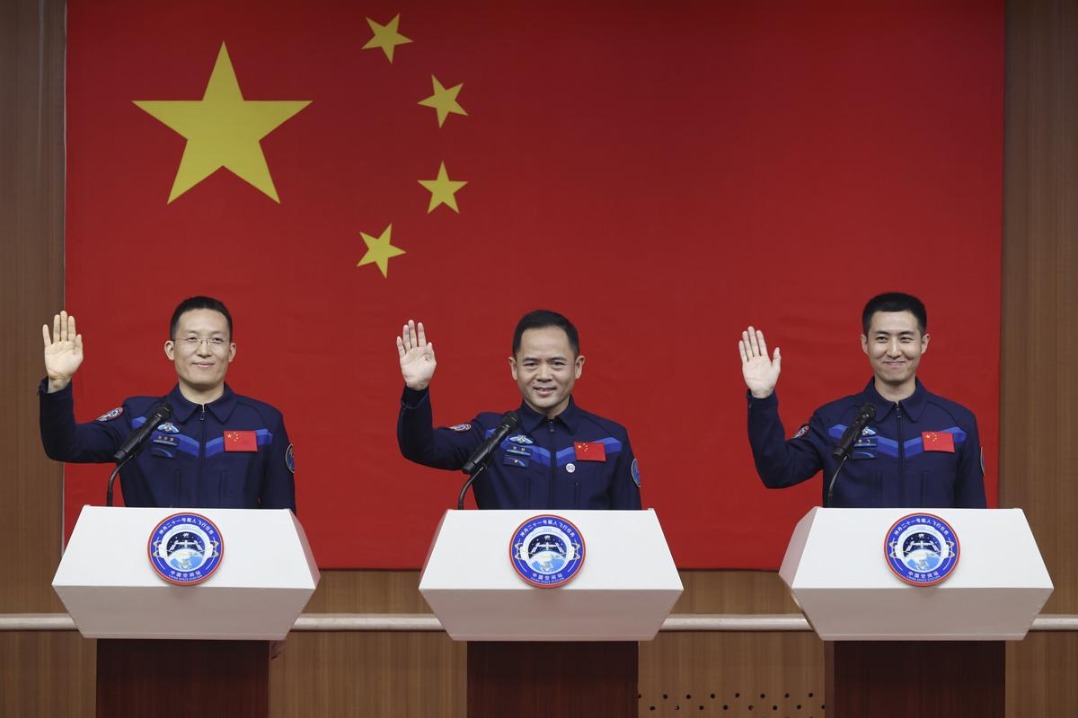Right to freedom of religion better protected


China has witnessed many significant changes in the past 100 years in the field of human rights. Its rapid economic development, strengthening national power and rising international status have provided a solid foundation for the people to enjoy human rights.
As the country gears up to mark the 70th anniversary of the founding of New China, it is worth recalling President Xi Jinping's remark in December 2018 that Chinese people enjoying a happy life is the best form of human rights.
Thanks to its fast-paced economic development, China's industrial, agricultural, and science and technology sectors have made giant strides, and Chinese people's living standards have greatly improved. Last year, for example, China's per capita disposable income reached 28,228 yuan ($3,980.75), a 24.3-fold increase over 1978, while the per capita disposable income of urban residents touched 39,251 yuan.
China's socioeconomic development has boosted people's economic, social and cultural rights. The full implementation of the International Covenant on Economic, Social and Cultural Rights has not only protected but also promoted the rights of women, the disabled and children.
China has also established social security and insurance systems in an all-round way to help the vulnerable sections better enjoy human rights, and open up employment and education opportunities for them, as well as give them easier access to healthcare.
The government has always attached great importance to poverty eradication, improving people's living standards and achieving common prosperity. In fact, China has solved the food and clothing problem of more than 1.3 billion people and lifted about 800 million people out of poverty.
Over the past 70 years, China has also improved mechanisms for promoting the legitimate rights of ethnic minority groups, and adopted measures to create development opportunities for them.
The ethnic groups in many areas of China, as prescribed by law, enjoy more autonomy than the rest of the population in fields such as education, science and technology, culture, healthcare and politics. And the local economies of the areas where ethnic minority groups are concentrated have experienced rapid growth thanks to the substantial support and investment from the central government.
Take the case of the Xinjiang Uygur and Tibet autonomous regions for example. Tibet's GDP increased by about 192 times, from 174 million yuan in 1959 to 147.76 billion yuan in 2018, while Xinjiang's soared from 3.9 billion yuan in 1978 to 1.22 trillion yuan in 2018.
The central government has taken a host of measures to protect citizen's right to freedom of religion, safeguard their cultural rights and allow all ethnic groups to use their mother tongue as a medium of education. For instance, the government has established a database for the endangered languages of ethnic minority groups, and provides bilingual education in ethnic minority areas.
But the government firmly opposes ethnic separatism, terrorist acts and the interference of external forces in ethnic minority areas. Since the 1990s, terrorists, separatists and extremists within and outside China have carried out thousands of violent attacks in Xinjiang mainly due to the spread of religious extremism.
The Xinjiang Uygur autonomous region government has since taken a series of measures, based on law, to crack down on terrorists and prevent terrorist attacks, including setting up vocational education and training centers.
The training centers also provide boarding facilities and offer courses in Chinese and different ethnic languages and law, as well as impart training in professional skills in a bid to wean them the vulnerable elements from extremist thoughts and doctrines.
In July 2019, more than 50 envoys from Russia, Pakistan, Saudi Arabia, Algeria, Cuba and other Asian, African and Latin American countries, representing more than 2 billion people, jointly wrote a letter to the United Nations supporting China's anti-terrorism measures.
Moreover, 28 of these countries are members of the Organization of Islamic Cooperation, and many of the envoys visited Xinjiang, after which they said that what they saw and heard were totally different from the Western narrative.
Vladimir Voronkov, under-secretary-general for United Nations counter-terrorism affairs, after visiting Xinjiang, commended China's efforts to fight terrorism through deradicalization measures, saying such measures should be taken by all countries.
President Xi has said that the Universal Declaration of Human Rights formulated by the UN is a document of great significance in the history of human civilization and has exerted a profound influence on the development of human rights in the world.
The Chinese people are willing to work with the people of all countries to uphold the common values of peace, development, fairness, justice, democracy and freedom, and to safeguard human dignity and rights, promote a more just, rational and inclusive international human rights governance mechanism, as well as jointly build a community with a shared future for mankind to create a better future for the world.
The author is a board member of the United Nations Association of China, and a member of the Advisory Committee of Human Rights Council. The views don't necessarily represent those of China Daily.

































